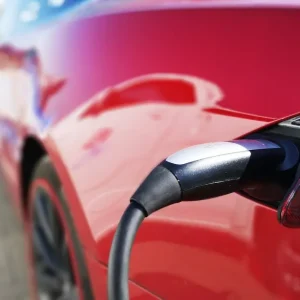Software company Gurtam has hailed the benefits of providing services for smaller fleets as it looks to expand into new markets.
The company’s Wialon GPS tracking and fleet management platform is used by fleets totalling 3.5 million vehicles globally.
The firm’s approach sees its technology supplied through a network of service providers and integrators.
It is seeking new markets since it decided to close its Russian office, and make its services in Ukraine free of charge, following the outbreak of the war in Ukraine last year, with those two countries having previously been its biggest income sources.
Speaking during a media roundtable event, Gurtam’s head of Wialon Aliaksandr Kuushynau acknowledged that the company’s name would be new to many.
He said: “We are not yet that well known on the fleet management and telematics global market compared to some other big names.
“The reason behind that is that, first of all, we work through a network of service providers and integrators, and most of those would be small- to medium-sized companies.
“Most of the fleets that are served by our partners will also be small- and medium-sized. It would be a very unique case if a fleet of a few hundred vehicles would be connected to Wialon, and it is quite a unique case where we have some big names we can talk about, because those bigger companies have a very specific approach to suppliers, [with] specific requirements, and they want to have bigger names in terms of providers.”
Kuushynau said that the opportunity Wialon offered to smaller fleets was a key aspect.
He said: “That is very important because sometimes it might seem that only some bigger companies are entitled to have AI, machine learning, all of those things that you see on the news. But due to our platform and distribution scheme, we empower small-to-medium fleets.
“The company might [only] have five cars, but with our platform and our partners they can have the same visibility, the same quality of software, the same quality of data, that bigger fleets would have. And that’s very important, we feel.”
With Wialon being a device-agnostic system, Kuushynau said that partners were free to choose a device to get the amount of data they wanted.
He said: “It might just be the position of the vehicle and ignition; it might be position and temperature and fuel level and a lot of other data that comes through CAN bus or OBD. It might also be any additional sensors that the fleet would need to have to control some parameters.
“It might be humidity, it might be temperature for medical goods or the food industry. A lot of extra sensors can be connected to our platform, that we can analyse, run reports on, and provide business intelligence on what’s really going on with the fleet.”
Although 24% of Wialon’s global fleet is made up of cars, its UK presence is currently mainly in logistics, delivery, and emergency services fleets. However, it does have technology that could be offered to company car fleets if a willing partner stepped forward.
One of the company’s existing partners is Surrey-based ACSS, which offers services including CCTV and telematics for fleets including couriers and taxi operators.
When asked what the advantages were of Wialon, ACSS technical manager Alasdair Graham said: “Adaptability. It’s the ability to customise and adapt to customers that might have the smaller fleets, right up to larger fleets.”
Graham also explained the advantage of Wialon from a fleet manager’s point of view.
He said: “Every minute detail that the vehicle can give you data-wise is getting more and more accessible and reportable. That is a massive data set, and to the fleet managers, to see the raw data is not viable for them day-to-day.
“So, the AI side of things allows users of the telematics to receive filtered, analysed information that is relevant to what they actually need to see.”





